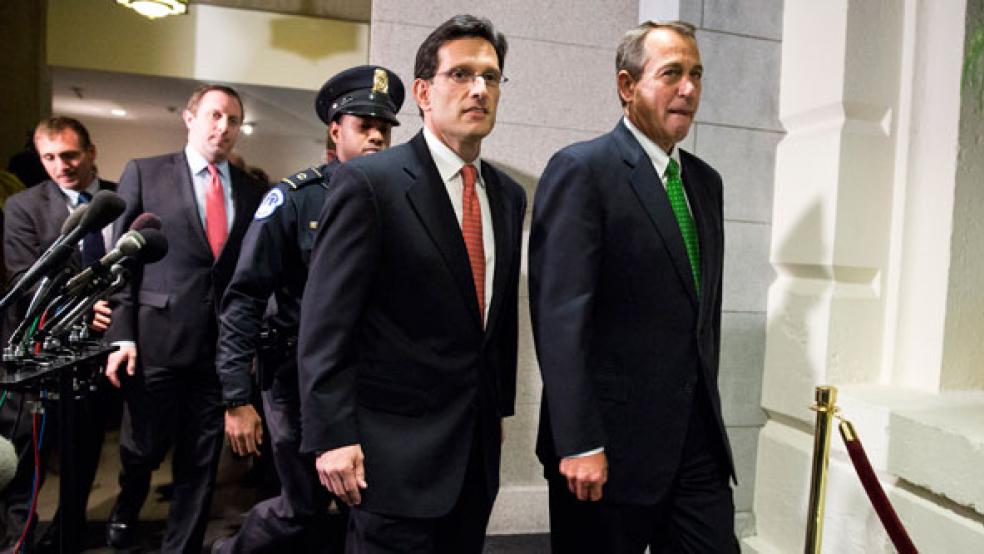House Republicans are rallying around a new strategy to undermine the president’s signature health care law.
House Majority Leader Eric Cantor scheduled a vote on Friday to tie a delay of Obamacare’s individual mandate, requiring all Americans to possess health insurance by March 31 or pay a penalty, to a piece of bipartisan legislation that would permanently fix Medicare’s flawed physician payment system.
Related: Congress Plans to Dump Medicare’s “Doc Fix”
Since 1997, the federal government has been using the sustainable growth rate (SGR) formula to determine how much to pay Medicare doctors. But since Medicare spending has exceeded the target every year since 2003, doctors have been left vulnerable to major pay cuts.
To prevent that, Congress uses a go-to solution called the “doc fix” to approve extra funding for doctors’ pay in order to keep provider payments stable amid budget shortfalls. Since doc fixes are expensive and have cost taxpayers about $150 billion over the last decade, lawmakers have been trying to find a permanent solution for years.
The latest $138 billion proposal has been tabled because no one can decide how to pay for it. For Republicans, that’s where the individual mandate delay comes into play.
Related: Health Care Budget Focuses on “Doc Fix”
They want to repeal the provision and put the funds toward a permanent doc fix. The proposition puts House Democrats in a vulnerable position, as they will be forced to either vote against a permanent solution to the expensive flawed physician payment system or vote against a crucial provision of the president’s health care law.
The Congressional Budget Office estimates that delaying the individual mandate would save $9 billion each year. The idea is that fewer people would sign up for health coverage through the exchanges or Medicaid, so fewer people would be receiving federal subsidies under the law.
Of course, the measure is highly unlikely to survive the Democrat-controlled Senate and would most certainly be vetoed by the White House. Still, the GOP proposal may mean that a permanent solution to the doc fix may once again be kicked down the road.
Top Reads from The Fiscal Times:





